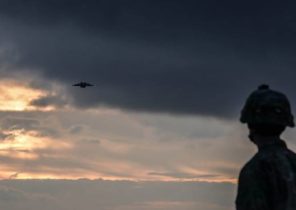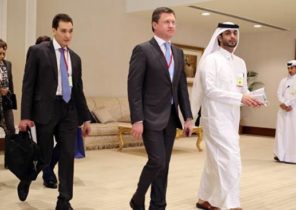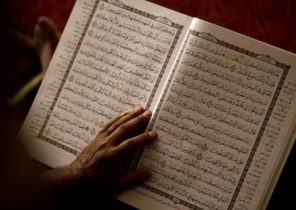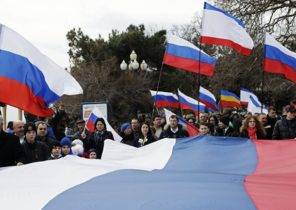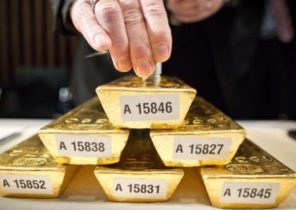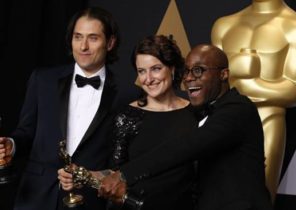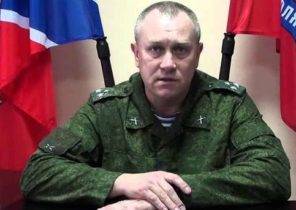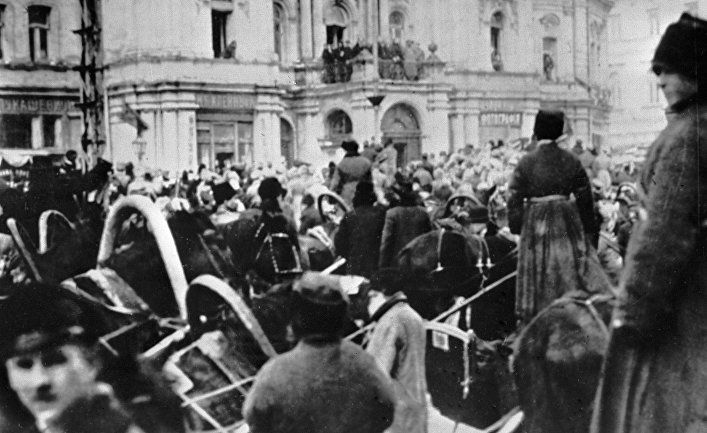
Recently, we entered into a year ending figure 17. A hundred years ago, when was the First world war, with Russia and all the world was a terrible misfortune. In St. Petersburg, the Bolsheviks, under the leadership of Vladimir Ilyich Ulyanov-Lenin, Lev Davidovich Bronstein-Trotsky and other revolutionaries made a revolution, who later pompously called the great October socialist revolution.
The participants of the coup overthrew the weak provisional government, thus plunging Russia into a terrible chaos of years of civil war. But the victory of the Reds in Russia have led primarily to the establishment of a bloody dictatorship that resulted in millions of victims, and to the total ruin of the country.
According to the official name of the revolution, at first glance it seems that the Bolsheviks seized power in October, but the Communists around the world celebrate the anniversary of the so-called revolution in November. All because then Russia used a different calendar.
But, as mentioned in a joke of times of totalitarianism, such inconsistencies during the great October socialist revolution, the Bolsheviks wanted to confuse the class enemy.
And we can say that for almost eighty years, while in Russia, the continued reign of the Communists, they succeeded. The consequences of their rule-or, rather, we overcome raging still.
1927: from a killer into a hero
Three years after Lenin’s death and ten years after the revolution, the new leader of the Bolshevik Russia in 1922 called the Union of Soviet Socialist Republics, Joseph Stalin finally consolidated his power. His most serious rival, Leon Trotsky, in the same year, was expelled from the Communist party. Two years later he was expelled from the Soviet Union.
After wandering over several countries, Trotsky was finally granted political asylum in Mexico, where in 1940 he was killed, struck with an ice pick in the head of the Spanish Communist and Soviet NKVD agent Ramon Mercader. After the trial and serving a 20-year prison term Mercader went from Mexico through Cuba and Czechoslovakia in the USSR, where he received the title of Hero of the Soviet Union.
This is the highest Soviet title, which only occasionally received foreigners, including Czechs received, for example, captain Otakar Yarosh (posthumously), and cosmonaut Vladimir Remek and General Joseph Bursik, which in 50-e years managed to escape from the Communist prison and get to the UK. In August 1968 he appeared at the Soviet Embassy in London and returned in protest of all his Soviet awards.
1937: in search of the enemy
The twentieth anniversary of the “Great October revolution” in the USSR was celebrated in an atmosphere of terror, which received a large scale against all sectors of the population. The enemies sought in the Communist party, and in the management of industrial enterprises, and, of course, the security services and officers of the red army.
In 1999 in Leipzig, a former Gorbachev adviser Valentin Falin told me that when he was 11 years old, he was afraid that the night will come for his father, and his family will never see. People were arrested EN masse.
A victim of repression, among many, was 44-year-old Marshal Mikhail Nikolayevich Tukhachevsky, whom the hero of the Second world war, Marshal Georgy Zhukov was later called a giant military thought and the star of the first magnitude. Tukhachevsky became a victim of the purges due to the planted documents created in Nazi Germany and Stalin passed through the President Edvard Benes.
According to historians, this Nazi trick was not a decisive factor, but only brought a tragic end Tukhachevsky, who himself, as a commander, was famous for cruelty and ruthlessness, for example, the suppression of the unrest in Ukraine.
1947: the Kremlin is scary
In the year of the thirtieth anniversary of the great October socialist revolution, Stalin is at the helm. The traditional military parade on red square, a dictator could only slyly smile. Two years before that, he won a tremendous victory in the war with Nazi Germany now controlled all of Eastern Europe and part of Central. And although some countries, such as Yugoslavia and Poland, there were problems in other regions all went like clockwork.
In 1946, developed in Czechoslovakia in the elections the Communists won the Gottwald, receiving 38% votes, and so they gradually began to take control of the whole country. However, they haven’t talked about the Sovietization of the country, the collective farms or forced labor camps.
Only in February 1948 and immediately after, Gottwald and his companions left the idea of a specific Czechoslovak way to socialism and fully obeyed the dictates of the Kremlin. Thus the Gottwald were very afraid of Stalin feared for his life. This writes the historian jiří Pernes in his book, “Here’s who we ran” (published by Brana, 2003).
1957: victory in space
In the Soviet Empire still hear the echoes of discontent in Poland and Hungary, which entailed great sacrifices. The problem then was overcome only thanks to massive use of the Soviet army, and in Poland — and even local armed forces.
A week after the death of Antonin Zapotocky, on 19 November, the third “working” President of Czechoslovakia Antonin Novotny was called Beautiful. It was appointed on the initiative of the Soviet leader Nikita Khrushchev. This “recommendation” of the Politburo of the CPSU Central Committee — and such recommendations then in the countries that were vassals were not discussed Khrushchev gave the delegation of the Czechoslovak comrades, headed by Novotny and arrived in Moscow just in time for the 40th anniversary of the great October socialist revolution.
In the jubilee year, the Soviet Union entered the race for the conquest of space by running, to the surprise of the United States of America, October 4 in earth orbit, Sputnik 1 weighing 80 kg. Two months later in Leningrad, the water was solemnly launched the icebreaker “Lenin”. Of these peaceful successes of Soviet propaganda squeezed the maximum.
1967: we have executed and will execute
On the 50th anniversary of the victory of the Bolsheviks in Russia and the tenth year of Antoninus Novotneho work on the post of Czechoslovak President throne beneath him began to sway dangerously. A harbinger of the fall was the October demonstration of students in Prague Strahova who were protesting against the constant power outage in the dorms.
By peacefully protesting students who were chanting “We want light!”, then the police used brutal measures. Their employees were beaten indiscriminately students not only in the streets but in the corridors and rooms of the hostels.
In the spring of strained relations between the Communist authorities and writers. This has contributed to the official position of Czechoslovakia in the Arab-Israeli conflict. After the IV Congress of the Union of writers in June, was banned, in particular, the newspaper Literární noviny. In December came the successor of Khrushchev, Leonid Brezhnev, who uttered the memorable phrase: “It’s your business”.
Thus, in the conflict inside the Communist party of Czechoslovakia (HRC), he sided with opponents of Novotny, who on 5 January 1968, he was replaced as first Secretary of the Central Committee Alexander Dubcek. Thus, Brezhnev, Novotny indirectly avenged for his protests against Khrushchev in 1964.
During the 50th anniversary of the great October socialist revolution the revolutionary left around the world suffered a great loss. In Bolivia without trial, executed them icon, adventurer and revolutionary of Argentine origin — Ernesto Che Guevara, who became famous phrase: “Yeah, we executed, and we execute will be executed”, — is spoken in 60 years in a speech before the UN General Assembly in new York.
1977: impostors and losers
Deathly silence “normalisierung” Czechoslovakia broke in early January, the first statement of the independent initiative group “Charter 77” and its a document signed by almost 200 members of the public, including some former Communists. The publication of the Manifesto in which the signatories were required to respect human rights, in the foreign media, caused a hysterical reaction in the local Communists.
The first victim of the hunting of the signatories was one of the representatives of the initiative group — the philosopher Jan patočka, who died in March after a lengthy and exhausting interrogation at the security Committee at the age of almost 70 years. “Impostors and losers” was the title of an article in the newspaper Rudé právо, in which are listed the names of some of the signatories of the Charter with humiliating comments. But the text that took half a page and published the newspaper of the Central Committee of the KSČ with significant changes on the second page was signed anonymous coward reducing RP.
In the year of the 60th anniversary of the Great October revolution Czechoslovak hockey players managed to win at the world Championships in Vienna the gold medal. The Soviet Union was only in third place. Our players received this trophy two years in a row. In 1976, they managed to become winners at the world championship in the Polish city of Katowice, where the Soviet team won, even poles.
1987: hungry paratroopers
The celebration of the 70th anniversary of Communist rule in the USSR took place in the context of Gorbachev’s perestroika and glasnost. Moscow, however, gave a very gloomy and sad impression. The store was only bread, one kind of sausage, sugar and soft drinks. However, every day was traveling to Moscow by crowds of the inhabitants of the neighboring towns and villages with large backpacks on their shoulders, to purchase products that the province would not get it. Muscovites call them paratroopers.
In addition, at that time, the entire USSR was acting so-called dry law, according to which vodka and other alcoholic beverages are issued only on the cards. But on the black market again to get alcohol. Despite these problems, in theatres, in universities and in General among the intelligentsia there was an atmosphere of freedom. At the time I visited Moscow and had the opportunity to speak freely and come to pass with some people. Many of them also wondered about the events in Czechoslovakia in 1968.
In April 1987, for the first time in the role of General Secretary of the Communist Party of the Soviet Union Prague was visited by Mikhail Gorbachev. The Czechoslovak public had expected that Gorbachev at least a hint distanciruemsa from the aggression of 1968. But nothing like this, to the disappointment of the Czechs and Slovaks, did not happen.
When I later discussed this topic with Zdenek Minaram and Valentin Falin, both of them I confirmed that Gorbachev had received explicit orders from the Politburo not to comment on the Czechoslovak events of 1968.
Significant changes in Czechoslovakia occurred in December. Gustav Husak was forced to resign as General Secretary of the Central Committee, and was replaced by Milos Akeson. Some conservative members of the leadership, the HR Committee believed that Jakes, who was personally acquainted with Gorbachev still work in the party committees on agriculture, will help to preserve the regime. Two years later it turned out that Gorbachev compromised such figures do not interest.
The end of the Soviet Union and the formal friendship
Four years after the celebration of the 70th anniversary of the great October socialist revolution the Soviet Union collapsed.
Together with thousands of Czechoslovak citizens took the responsibility to take part in the celebrations of the Month of Czechoslovak-Soviet friendship, which officially began in Czechoslovakia just on 7 November demonstration in Prague, with the participation of top leaders of the party and the government, and the Soviet delegation.
Finally their activities made up the second largest (three million members) organization (the first was the Revolutionary trade Union movement) — the Union of Czechoslovak-Soviet friendship.
With the Soviet Union forever and not a day longer — and the sooner the Czechs commented with a typical sarcastic attitude toward the Soviet Union and the regime, which after the Second world war was, unfortunately, forced on us by this world power. Unfortunately, not only for Czechs but also for the Russian people. By the way, recently it was recognized by the current Russian President Vladimir Putin, who, however, as the majority of Russians regret the collapse of the Soviet Union.
